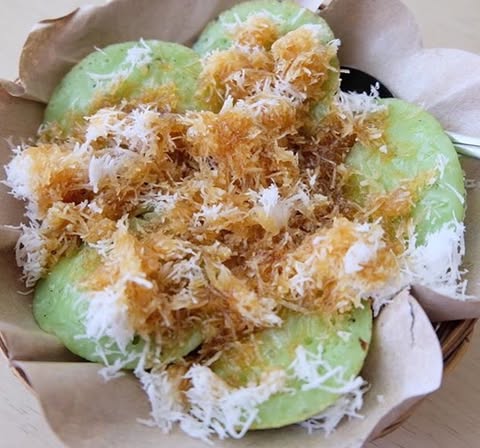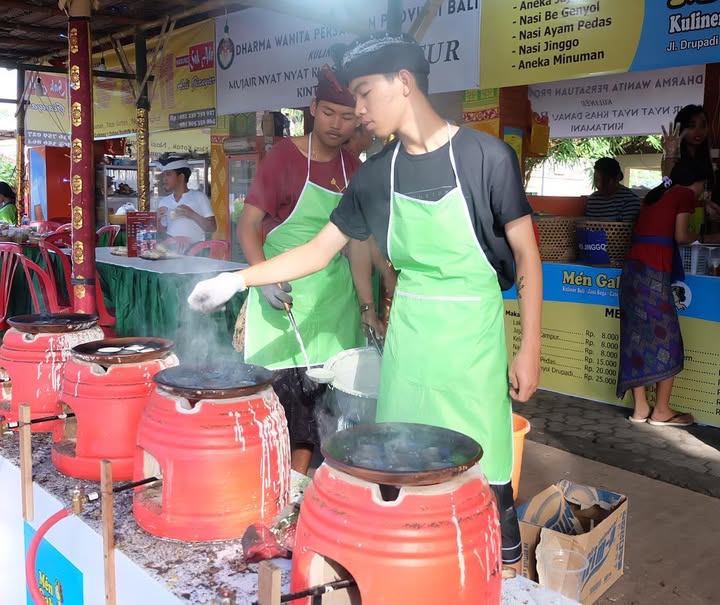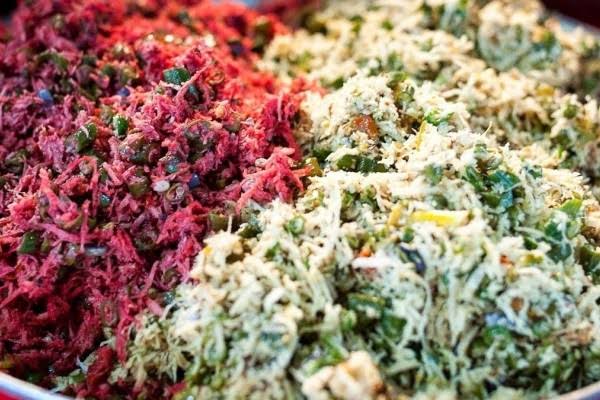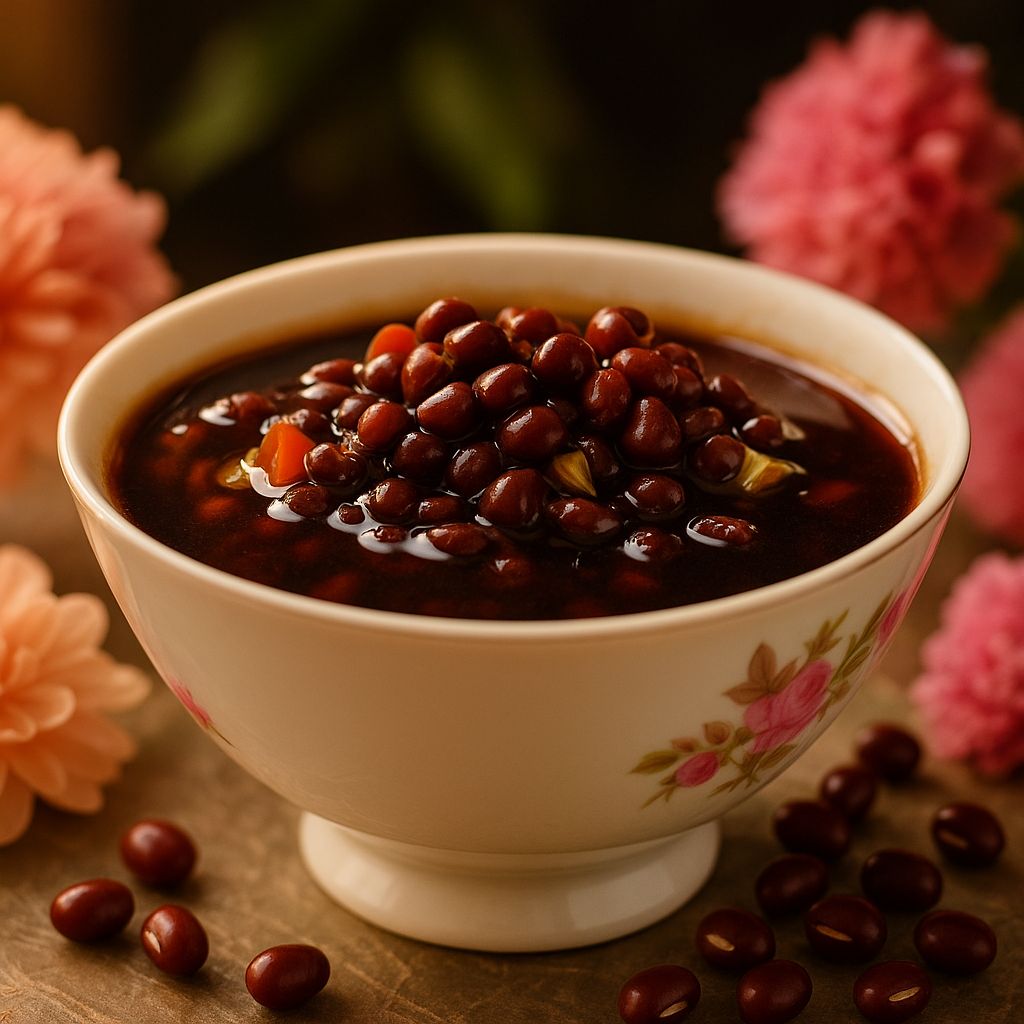Amidst the rapid growth of modern cuisine, traditional snacks continue to hold a special place in the hearts of the Balinese people.
One such delicacy that has stood the test of time is laklak, a traditional rice flour cake naturally colored with pandan and suji leaves.
In Denpasar, Laklak Ne Men Gabrug has successfully revived this classic treat while maintaining its authenticity.
From Childhood Memories to a Culinary Business
Ni Made Sutrisni, known as Men Gabrug, started her laklak business out of nostalgia for the flavors of her childhood in Buleleng. In 2012, she first introduced her laklak at the Bali Arts Festival (PKB).
The enthusiastic response from visitors encouraged her to establish a permanent food stall in Jalan Hayam Wuruk, Denpasar, Bali, the following year.
Freshness in Every Serving

One of the unique aspects of Laklak Ne Men Gabrug is its commitment to freshness.
Unlike many places that pre-make their snacks, Men Gabrug ensures that every laklak is freshly prepared upon order.
Customers may need to wait a few minutes, but the reward is a warm, soft, and aromatic laklak straight from the pan.
Traditional Cooking with Coffee Wood Fire
To maintain its authentic taste, Men Gabrug adheres to traditional cooking methods. She uses coffee wood fire, which provides stable heat while minimizing excessive smoke.
This technique not only enhances the laklak’s distinct aroma but also ensures an even cook with a vibrant green color.
Simple Yet Meaningful
Although laklak appears simple, making it requires precision.
The mixture of rice flour, water, and natural coloring from suji leaves must be perfectly balanced to achieve the right texture.
If the process is not carefully followed, the laklak can become dense and lose its signature softness.
Interestingly, Men Gabrug chooses to keep her laklak in its original form without adding modern toppings like cheese or chocolate.
She believes in preserving the snack’s authenticity, allowing future generations to enjoy laklak as it has been for centuries.
Preserving a Culinary Legacy
For Men Gabrug, laklak is more than just a business—it is a piece of Bali’s cultural identity that must be preserved.
She hopes more people, especially the younger generation, will take an interest in learning how to make laklak to ensure this traditional delicacy continues to thrive.
As Bali’s culinary tourism flourishes, establishments like Laklak Ne Men Gabrug serve as a testament to the enduring appeal of traditional food.
The experience of enjoying freshly made laklak, infused with the aroma of coffee wood and an authentic taste, is truly unforgettable. It is a delicious and meaningful way to preserve Bali’s rich culinary heritage. (BT)





